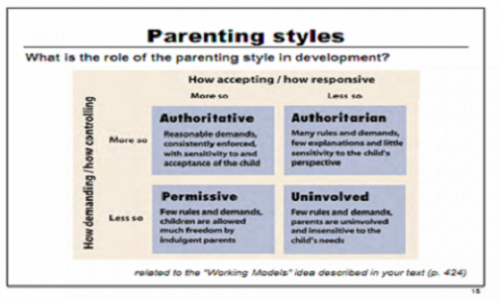How to keep custody of your child
8 Ways to Ensure You Retain Custody of Your Child
The presumption that a mother will be the primary caretaker of a child post-divorce or separation no longer exists in Texas. In fact, the Texas Family Code specifically states that the court will consider the “qualifications” of the parties without regard to the sex of the parent or child, in determining conservatorship and possession issues. In other words, custody decisions are supposed to be gender-neutral.
Currently, in Texas, it is presumed that parents will be designated as “Joint Managing Conservators” and jointly share the decision-making rights and responsibilities for the children; however, one parent is typically designated as the primary parent, which is the parent who has the exclusive right to establish the primary residence custody of the children. When parents are unable to agree, a court must make this determination based upon what the Court believes is in the best interest of the children taking into consideration multiple factors, including the qualifications of the parties without regard to the sex of the parent, or children.
- Be the Primary Caretaker
In a custody suit, one of the main factors the Court considers in determining primary custody is which parent has historically been the primary caretaker of the children. This includes taking care of the daily routine responsibilities for children such as feeding, preparing meals, taking to and from school and appointments. Even when both parents work, typically the Court will look at which parent manages more of the daily caretaking and responsibility for the children in determining the primary caretaker.
- Be Active in Your Child’s Routine
Know your children’s activities and schedule. Know their teachers and their friends. Be the parent who is more actively engaged in their daily routine, which ultimately better positions you in a custody suit.
- Use Good Judgement and Control
It is important to have an established pattern of setting age-appropriate rules and boundaries for your children and using appropriate discipline when required while the children are in your care.
- Avoid Excessive Alcohol Use
“In my opinion, Courts have become more and more sensitive to alcohol use,” says Porter, “and if an allegation is made that one parent is abusing alcohol, the court takes it very seriously.” In these cases, Courts have various ways to monitor alcohol use, including requiring a parent to submit to blood or urine tests, or submit to breathalyzer testing to ensure the safety and welfare of the children, or compliance with Court orders.
- Avoid All Illegal Drugs
Using illegal drugs and other controlled substances that you do not have a valid prescription is an almost guarantee that you will lose custody or have restricted access to children. “My advice is if it’s against the law, don’t do it,” advises Porter.
- Use Extreme Caution on Social Media
Thanks to all the new technology virtually every custody case involves evidence that a party posted on social media or sent in writing, whether a text message, email or private message. Custody cases can turn on this type of evidence.
Custody cases can turn on this type of evidence.
- What You Say Can and Will Be Used Against You
Divorces and custody lawsuits can get heated. Be careful what you say about the other parent or to the other parent because you never know who may be recording you. As long as the person recording is a party to the conversation, it is legal. Often these recordings are played in Court and can be very powerful evidence in a custody case.
- Hire the Best Custody Lawyer You Can
If you find yourself facing a custody lawsuit, it is crucial to hire the best custody lawyer at the outset of the case, when strategic and determinative decisions are made. With offices in Dallas, Houston, Plano, Southlake and Denton, KoonsFuller is the second largest family law firm in the country and has more board-certified family lawyers than any other family law firm in Texas. Divorce and custody proceedings are stressful; however, having an experienced attorney who is your advocate can provide some peace of mind and confidence during the process.
5 Tips to Maintain Full Child Custody | Minella Law Group
If divorces weren’t already one of the most stressful things a person can ever go through in their life, the addition of custody battles over children brings a new painful and complex element to the mix.
How to maintain full custody of your child can break down to several steps, most of which involve keeping track of every record, piece of paper, and signed document the court gives you during the duration of your divorce proceedings. And secondly, with your focus and enthusiasm, it will be clear your child should belong in your custody.
While there is no sure fire way to maintain custody, there are 5 tips you can focus on to make the best case possible to maintain full custody of your children.
1. Keep everything you do legally above board.Nothing will have a child removed from a parent’s custody faster than the parent getting in trouble with the law. Even something as harmless as going above the speed limit with your child in the car, or forgetting to buckle a seatbelt, could be considered serious child endangerment. Showing that you can be a danger to your child at any point will have the court or Child Protective Services immediately removing the child from your care.
Even something as harmless as going above the speed limit with your child in the car, or forgetting to buckle a seatbelt, could be considered serious child endangerment. Showing that you can be a danger to your child at any point will have the court or Child Protective Services immediately removing the child from your care.
Showing up on time, dressed as though you were attending a business meeting and not just on your way to the grocery store. Arrive with documents in hand, in order, signed dated and ready show to each clerk. This proves you have respect for the court and their system and you are dedicated to keeping your family together. People who come to their hearings ready, informed, and serious about their case get much better treatment than families where the children’s well being seems to come second or third to whatever mom and dad had planned that afternoon.
3. Taking your child’s wishes into considerationIn some states, the judge will take into consideration which parent the child would rather live with full time. This doesn’t mean the child will instantly end up with whichever parent they prefer (judges can usually tell when a parent is using bribery or fun over responsibility to curry favor) but if a child is comfortable in one home and not the other, it can be part of the decision making process.
This doesn’t mean the child will instantly end up with whichever parent they prefer (judges can usually tell when a parent is using bribery or fun over responsibility to curry favor) but if a child is comfortable in one home and not the other, it can be part of the decision making process.
Above all else, it is about the safety and well being of the child or children in question, and their opinion can matter.
4. Be civil to your co-parent.A sure-fire way to impress the court is to be polite and kind to your former spouse. No matter how nasty things were behind closed doors, when you are in front of your child and the lawyers, judges, and other civil servants determining your child’s future be sure to act as sane adults. By being able to calmly and maturely discuss matters of the children’s education, health, and other needs reflects back well on you, making it more likely you are the best place for the child to live.
5. Remember, it is all about what is in the child’s best interest.
At the end of the day, the judge is determining which parent will have primary custody for the best interest of the child. Which parent has the safest place for the child to live? Which parent lives closer to the school that the child currently attends? Who has been primarily caring for the child in his or her early life? Naturally, if one parent abuses, molests, beats or in any other way harms the child, there is no question of custody not going to an abusive parent.
If you are going through a divorce and battling custody, we can help. Custody battles are never fun but making sure the court has the necessary information to make the best decision is crucial. The skilled attorneys at Minella Law Group have experience with child custody cases. For more information or to schedule an appointment call us at (619) 289-7948. We look forward to helping you!
How can a father get custody of a child in a divorce?
Igor, hello!
Art. 54 of the Family Code of the Russian Federation, every child has the right to live and be brought up in a family, the right to live together with their parents.
54 of the Family Code of the Russian Federation, every child has the right to live and be brought up in a family, the right to live together with their parents.
However, in cases where the cohabitation of the parents themselves is no longer possible and there is talk of dissolution of the marriage, it is necessary to determine with which parent the child will remain.
In accordance with the rules of art. 24 of the RF IC, the court, when considering a divorce case, is obliged to determine with which of the parents the minor children will live after the divorce, as well as from which of the parents and in what amounts alimony for their children will be collected.
If an agreement is not reached between the parents on the issue of the place of residence of the child, then this dispute will be considered by the court, taking into account many circumstances. The main criterion for determining the place of residence of a child with one of the parents in a judicial proceeding will be the interests of the child himself. On this occasion, the Supreme Court of the Russian Federation, in Resolution of the Presidium of October 27, 1998 No. 10, determined that the court takes into account the age of the child, his attachment to each of the parents, brothers, sisters and other family members, moral and other personal qualities of the parents, relations that exist between each of the parents and the child, the possibility of creating conditions for the child's upbringing and development (taking into account the type of activity and mode of work of the parents, their financial and marital status, bearing in mind that in itself an advantage in the material and everyday situation of one of the parents is not an unconditional basis for satisfying the requirements of this parent), as well as other circumstances that characterize the situation that has developed in the place of residence of each of the parents.
On this occasion, the Supreme Court of the Russian Federation, in Resolution of the Presidium of October 27, 1998 No. 10, determined that the court takes into account the age of the child, his attachment to each of the parents, brothers, sisters and other family members, moral and other personal qualities of the parents, relations that exist between each of the parents and the child, the possibility of creating conditions for the child's upbringing and development (taking into account the type of activity and mode of work of the parents, their financial and marital status, bearing in mind that in itself an advantage in the material and everyday situation of one of the parents is not an unconditional basis for satisfying the requirements of this parent), as well as other circumstances that characterize the situation that has developed in the place of residence of each of the parents.
Art. 57 of the Family Code of the Russian Federation, the child has the right to express his opinion when resolving any issue in the family concerning his interests, as well as to be heard in the course of any judicial or administrative proceedings. Consideration of the opinion of a child who has reached the age of ten years is mandatory. That is, if a 10-year-old child expresses his desire to live with one of the parents, then the court will take into account this opinion, unless it violates the interests of the child himself (if the parent with whom he wants to stay does not abuse alcohol, does not immoral way of life and does not create a threat to the life and health of the child by its behavior).
Consideration of the opinion of a child who has reached the age of ten years is mandatory. That is, if a 10-year-old child expresses his desire to live with one of the parents, then the court will take into account this opinion, unless it violates the interests of the child himself (if the parent with whom he wants to stay does not abuse alcohol, does not immoral way of life and does not create a threat to the life and health of the child by its behavior).
Moreover, arguments about the financial situation and the presence of a permanent job of the spouse with whom the child will not live are not taken into account by the courts. Because the obligation to support children is assigned to parents by the provisions of Art. 80 of the RF IC, and the fact that the child will live with his mother, for example, does not relieve the financially better-off father of the obligation to maintain him.
Igor, if you have any questions, ask, I will be happy to answer. You can also write to me in the chat and order a personal consultation or preparation of a document on your issue. All the best!
All the best!
How to become a short-term caregiver for a child
My friend is raising her 7-year-old son alone. For health reasons, she is forced to spend several months a year in the hospital. Since there are no relatives, every time for this time it is necessary to attach the child to someone of his acquaintances. I heard that in such cases it is now possible to arrange custody of the child, is this true?
Sutyagina E.V., Vologda.
Indeed, the Federal Law "On guardianship and guardianship", in force since September 1, 2008, significantly expanded the types of guardianship (guardianship) over minor children.
Thus, it is possible to appoint a guardian for a minor child for a period when parents, for valid reasons - for example, due to a long business trip or prolonged treatment in a hospital and other similar cases - will not be able to fulfill their parental duties (clause 1, article 13 of the Law " About guardianship and guardianship). In this case, parents have the right to apply to the guardianship authority at the place of residence of the child with an application, indicating a specific person for the role of guardian. Upon consideration of the application by the guardianship body, an act on the appointment of a guardian is adopted, in which the term of his powers must be indicated. It should be noted that for the first time in Russian legislation, when establishing guardianship over minors, the desire of their parents is taken into account. In addition, in the case when a child is brought up by a single parent, this parent has the right to appoint a guardian (custodian) for the child in the event of his death (clause 2, article 13 of the Law "On guardianship and guardianship"). The corresponding order on "testamentary" custody is made by the parent in an application that is submitted to the guardianship authority at the place of residence of the child.
In this case, parents have the right to apply to the guardianship authority at the place of residence of the child with an application, indicating a specific person for the role of guardian. Upon consideration of the application by the guardianship body, an act on the appointment of a guardian is adopted, in which the term of his powers must be indicated. It should be noted that for the first time in Russian legislation, when establishing guardianship over minors, the desire of their parents is taken into account. In addition, in the case when a child is brought up by a single parent, this parent has the right to appoint a guardian (custodian) for the child in the event of his death (clause 2, article 13 of the Law "On guardianship and guardianship"). The corresponding order on "testamentary" custody is made by the parent in an application that is submitted to the guardianship authority at the place of residence of the child.
However, in both cases, the person indicated by the parents may be appointed as the guardian of the child only on condition that such an appointment does not contradict the law, according to which only an adult capable citizen who has not previously been deprived of parental rights. When appointing a guardian, his moral and other personal qualities, the ability to perform guardianship duties, the relationship between the guardian and the child, and also, if possible, the desire of the child himself (Article 146 of the RF IC), are taken into account. In addition, the guardian (curator) is always appointed with his consent (clause 2, article 10 of the Law "On guardianship and guardianship").
When appointing a guardian, his moral and other personal qualities, the ability to perform guardianship duties, the relationship between the guardian and the child, and also, if possible, the desire of the child himself (Article 146 of the RF IC), are taken into account. In addition, the guardian (curator) is always appointed with his consent (clause 2, article 10 of the Law "On guardianship and guardianship").
It should be emphasized that the appointment of a guardian (custodian) in these cases is not a basis for depriving or restricting parental rights. the rights and interests of the child.
If the interests of the child require his immediate placement under guardianship (guardianship), it is possible to establish preliminary guardianship in a simplified manner, i.e. without the guardian (custodian) providing a number of documents confirming the necessary information about himself, for example, information about his state of health. The guardian provides this information later - within a month (in exceptional cases - two) after the establishment of guardianship, otherwise guardianship will be terminated.












